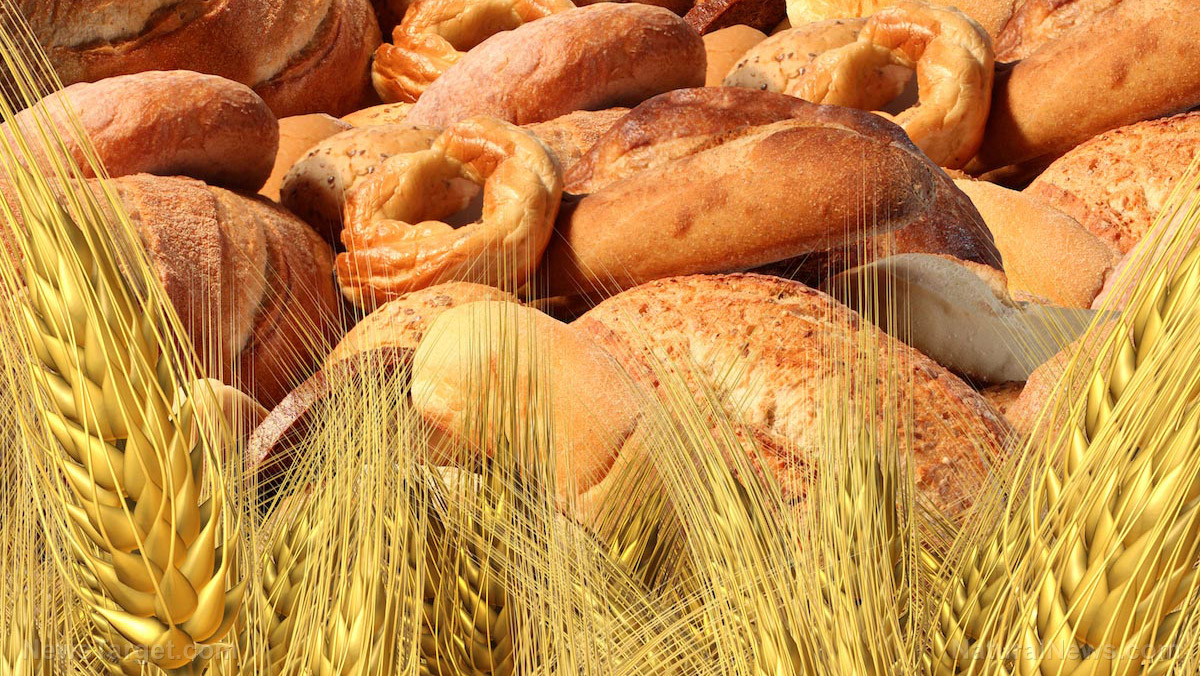- The Health Ranger Mike Adams discussed wheat as God’s nutritional gift in his 73rd sermon at the Church of Natural Abundance.
- Adams emphasized that the Bible’s promise of blessings – including abundance of wheat, barley and other crops – highlights God’s conditional covenant with humanity.
- Whole wheat berries, unlike processed white flour, are rich in essential fatty acids, vitamins (particularly vitamin E and B vitamins), minerals, fiber and protein, providing significant health benefits.
- Whole wheat berries support digestive health, may lower cholesterol levels and help regulate blood sugar, reducing the risk of disease.
- Whole wheat berries can be stored as a survival strategy and used in various culinary applications, including making nutrient-dense bread, highlighting their practical and cultural significance.
The 73rd sermon of the Health Ranger Mike Adams for the Church of Natural Abundance talked about wheat being God’s nutritional food.
Basing his sermon from a passage in the Book of Deuteronomy, the Bible nutrition educator said it is refreshing to revisit the wisdom of man’s ancestors and the divine gifts that have sustained humanity for millennia. One such gift is wheat, an essential grain that has played a pivotal role in human civilization and carries a profound spiritual significance according to the Bible.
God’s covenant with humanity, as articulated in the Bible, hinges on their obedience to His commandments. The promise of abundance in Deuteronomy 8:7-10 – a land rich in wheat, barley and other essential crops – underscores this covenant. This divine provision of wheat is both a testament to God’s love and a reminder of the conditional nature of His blessings.
Wheat is not just a staple food; it is a symbol of God’s generosity and a source of great nutrition. In a world where processed foods dominate supermarket shelves, this nutrient-dense grain is far from ordinary. It is a powerhouse of energy and sustenance that God intended to nourish the human body.
Unlike the processed white flour that fills most grocery aisles today, the whole wheat berry is packed with essential fatty acids, minerals, vitamins, fiber and protein. These qualities make it an invaluable addition to any diet.
Wheat germ is a concentrated source of vitamin E, a fat-soluble antioxidant that helps protect cells from damage. A deficiency in vitamin E can lead to a myriad of health issues, and many people today miss out on this crucial nutrient due to the widespread consumption of processed white flour.
The B vitamins and trace minerals present in whole wheat are critical for maintaining optimal health, yet most people today are deficient in these vital nutrients due to a diet dominated by refined, nutrient-poor foods. By returning to whole wheat berries and choosing organic, unrefined grains, people can reclaim the nutritional wealth that man’s ancestors took for granted. (Related: U.S. approves more FRAKENFOOD: Controversial genetically modified wheat grown using dangerous neurotoxin.)
“The modern processed food corporations, they take food that was meant by God to be a blessing for humankind. Then they break it apart, refine it, bleach it, take out just the calories of it, and they leave behind the germ,” Adams said.
“So, they leave behind the fatty acids and the best parts of the wheat. That’s why people are vitamin E deficient and vitamin B deficient.”
Whole wheat berries offer a range of health benefits
Beyond the basic nutritional profile, whole wheat berries offer a range of health benefits. High in dietary fiber, they support digestive health by promoting regular bowel movements and adding bulk to stools, which can alleviate constipation.
Moreover, the fiber in wheat berries may play a role in lowering cholesterol levels, potentially reducing the risks of heart disease and stroke. Incorporating whole grains like wheat berries into one’s diet can help regulate blood sugar levels, reducing the risk of diabetes and its associated complications.
In a fascinating study, Polish researchers explored the impact of using response surface methodology (RSM) to determine the optimal flour replacement levels and particle sizes in producing wheat bread rolls fortified with oat fiber.
Their findings highlight the potential to enhance the nutritional profile of wheat bread while maintaining sensory acceptability. This innovative approach underscores the importance of scientific methods in improving the health benefits of food products.
The versatility of whole wheat berries allows for a myriad of culinary applications. When ground into flour, they can be used to create hearty, nutrient-dense bread that stands the test of time, both nutritionally and culturally. Storing wheat berries as a survival strategy is not only biblical but also practical, ensuring access to vital nutrients during times of scarcity or disruption.
Listen to the 73rd sermon of the Health Ranger Mike Adams for the Church of Natural Abundance about wheat being God’s nutritional food.
This video is from the Abundance Church channel on Brighteon.com.
More related stories:
Mike Adams Sermon 47: GARLIC as God’s natural medicine against infections and high cholesterol.
Mike Adams Sermon 42: God’s superfruit FIGS can fight warts, staph infections and cancer.
Food storage: Containers for storing wheat berries for optimal shelf life.
Sources include:
Brighteon.com
BibleGateway.com
VeryWellFit.com
TAndFOnline.com
Read full article here


